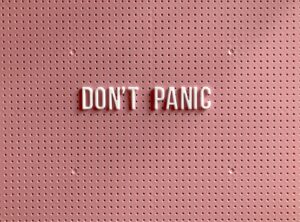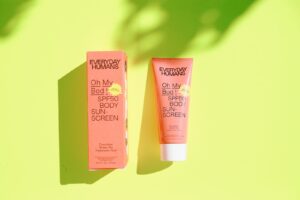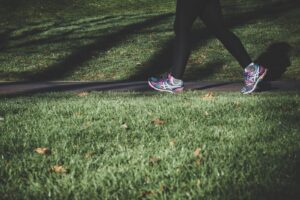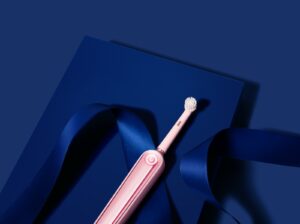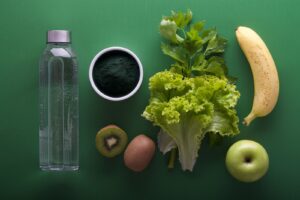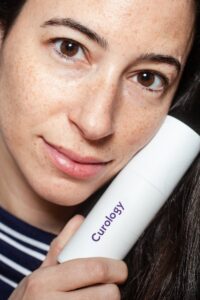


Because of the seasonal illnesses and colds, autumn and winter are particularly crucial for sleep. This article will show you how to prepare for changes in weather conditions and daylight so that you can sleep well through spring. Autumn and winter are for many people a time to rest. You can hear the rain on […]

Because of the seasonal illnesses and colds, autumn and winter are particularly crucial for sleep. This article will show you how to prepare for changes in weather conditions and daylight so that you can sleep well through spring.
Autumn and winter are for many people a time to rest. You can hear the rain on your roof, making weekend lie-ins all the more attractive. Outdoor activities like swimming or hiking are replaced by things that you can do in the comfort of your home (or your bed).
Therefore, it makes sense that our sleep patterns and how much sleep we get in winter change. Researchers have found that winter and autumn are two months when we sleep longer than spring. Participants in the study published by npj Digital Medicine also slept 25 minutes more each night in winter.
This could be due to melatonin, a hormone that our bodies naturally produce that promotes sleep. Researchers who wrote the paper said that melatonin production is linked to light exposure and longer days. Increased light can inhibit melatonin production. These dark winter days may be making us more tired.
Dr. Guy Meadows is co-founder of Sleep School and the clinical lead. He explains how seasonal variations can have a significant impact on your sleep habits.
This could mean that you may want to sleep in winter and get up earlier in summer. Dr Meadows believes this is due to the difference in how the sun rises in summer and winter. It can affect melatonin production. The body’s natural temperature can be affected by seasonal changes. This is important because it is a signal to the body that it is time for sleep.
Additionally, October’s clocks turning back can have an impact on our sleep schedule. This is because it signals the end of British Summer Time. Dr Meadows explained that the human body clock is responsible for controlling the timing of sleep. However, external timekeepers like our sleep schedule, when we eat, work and move, and how much light we expose ourselves to, are important. The clock can change, which means that these behaviors will be affected, which can lead to sleep problems.
As seasonal flus and colds increase, it is more important to sleep during winter and autumn. Even a slight loss of sleep can cause immune system problems. One study involving 160 healthy people found that those who slept less then seven hours per night were nearly 4.5 times more likely than those who slept more.
How can you prepare for the changes in your sleep schedule as autumn and winter approach? Dr Meadows shared his tips with us.
Dr Meadows says that artificial or natural blue light can be helpful for those who struggle to get up in winter. It stops the production of the sleeping hormone melatonin and activates the release cortisol, making them feel more awake and ready to tackle the day ahead.
It might be time for you to replace your alarm clock with a sunrise lamp. This will lighten the room and allow you to get up naturally. Dr Meadows suggests that you try bright light therapy for 10 minutes if it takes you too long to feel awake and alert.
He says that winter months are a good time to take walks outside, especially in bright sunlight. If you are working indoors, try to be near a window or stand by one during breaks.
Make sure you start your winter walks now, while it is still warm. It’s also possible to take some time on weekends to arrange your desk to maximize light exposure.
Although it can be tempting to keep your bedroom warm and cozy at night in winter, Dr Meadows warns that you could experience sleep disruptions when the heating is on.
He says that cooler environments are better for sleeping. The ideal bedroom temperature is between 16-17 degrees C. Switch off central heating to get the best sleep. Also, swap out your summer duvet with a heavier winter duvet. You can also use a combination sheet, quilt, and blanket to get better sleep.
You can also swap your summer clothes for winter coats by changing your winter sleep set up. Perhaps you should invest in a winter duvet.
Some people are more sensitive than others to time changes, just like jet lag. If you have had trouble with jet lag in the past, it is important to ease your body into the time change. Dr Meadows suggests that you go to bed 10 minutes earlier each night, six days prior to the clocks change. «This will gradually shift your body’s clock to the new time. It will be the same time when they turn back, so it will not feel the same as now.»
You should start marking the time in your calendar at least two weeks in advance of the clocks changing so that you don’t get caught up in the change and can begin to transition into the new time zone slowly.
Summer can be chaotic. There are festivals and nights out that might change the time you get to sleep each night. It is a good idea to try to establish a routine and wake up time before the colder months set in.
Dr Meadows explains that maintaining a consistent sleep-wake cycle throughout a year will strengthen your sleep cycle. This will allow you to wake up refreshed and lessen the effects of the seasons.
When the temperatures drop, it’s tempting to skip your lunchtime run or go for a run at home. Even though it is important to be mindful of your body and get enough sleep, exercising outside can help you improve your winter sleep.
Dr Meadows says that even a 10-minute activity outside can help improve nighttime sleep quality. She recommends that you go outside when the sun is at its brightest.
Outdoor exercise should be a part of your daily routine if it isn’t. This will ensure that you stick with it for a few months. You might find an outdoor class at your park, or even cold-water swimming. This is something that many people (admittedly courageous) do all year.


